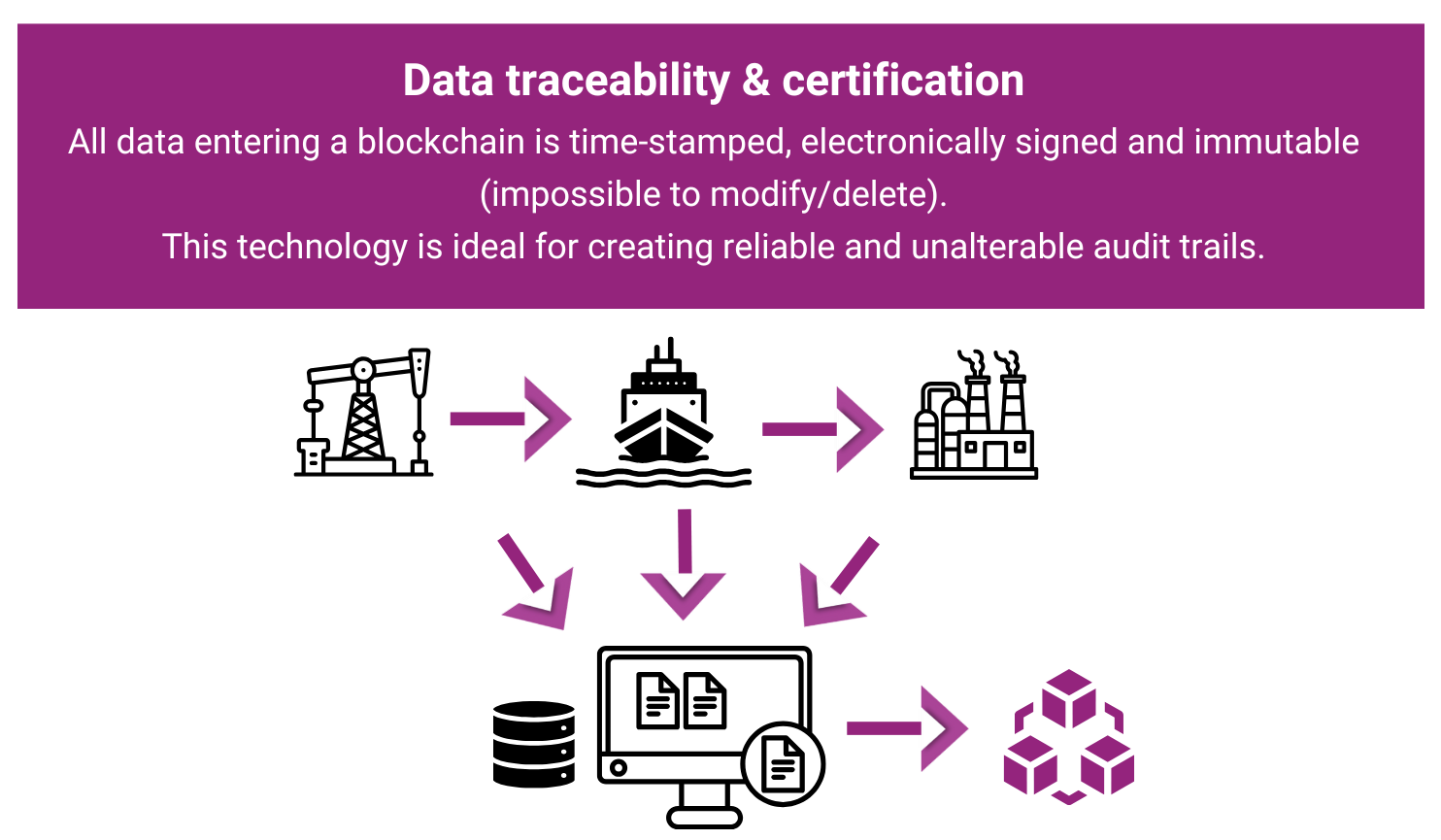Blockchain and guarantees of origin: a new era for energy traceability
In the energy sector, guarantees of origin (GO) are electronic certificates attesting that a given quantity of energy (electricity, hydrocarbons, etc.) has been produced from renewable sources. They play a key role in the energy transition, enabling businesses and consumers to choose greener energy. However, despite being governed by numerous regulatory measures, this system has its limitations: lack of transparency, dissociation between production and consumption, and risks of greenwashing.
Blockchain provides a technological solution to these challenges. Thanks to its distributed, tamper-proof and transparent ledger, it enables real-time certification of the origin of the energy produced and its consumption. This detailed traceability reinforces the credibility of companies' environmental commitments.

Each kWh of electricity produced will be linked to an identified source, a specific date and location. The same green electricity cannot be resold twice. This system makes it possible to match production and consumption on an hourly or daily basis, which is much more accurate than the annual model used by traditional GOs. This makes it possible to prove that a company is actually consuming green energy, and not simply purchasing low-cost certificates.

Each stage of hydrogen conversion will be tracked, proving whether the product consumed by an aviation company deserves to be considered green hydrogen or not in the context of SAF (Sustainable Aviation Fuel) regulations.
These principles also apply to all decarbonisation projects: a company seeking to purchase carbon credits must ensure not only that the project behind them has fulfilled its commitments, but also that the associated certificate has not already been sold and consumed elsewhere. This confidence can only come from reliable and certified shared data.
Thanks to its APIs, Tediji easily integrates with suppliers' energy production monitoring tools to track each key stage and justify the production of certificates of origin. These same APIs are available to consumers who may wish to automate the verification of the data sent.
Tediji also allows SAAS solution publishers already present in this market to add an unalterable audit trail to their existing traceability features at low cost.

Legal and operational advantages:
- Evidential reliability: for producers, data is time-stamped, certified and immutable, making life easier for customers as well as private and public auditors seeking to verify its consistency.
- Reduced risk of fraud: for brokers, certificates cannot be duplicated or falsified.
- Enhanced CSR commitments: for consumers, tangible proof of responsible consumption.
For legal professionals and energy managers, blockchain is becoming a strategic tool for securing energy flows, enhancing contractual transparency and anticipating regulatory changes towards greater traceability.
To fully understand the application of blockchain in the context of traceability, we invite you to watch the webinar on traceability and blockchain hosted by our colleague 👉